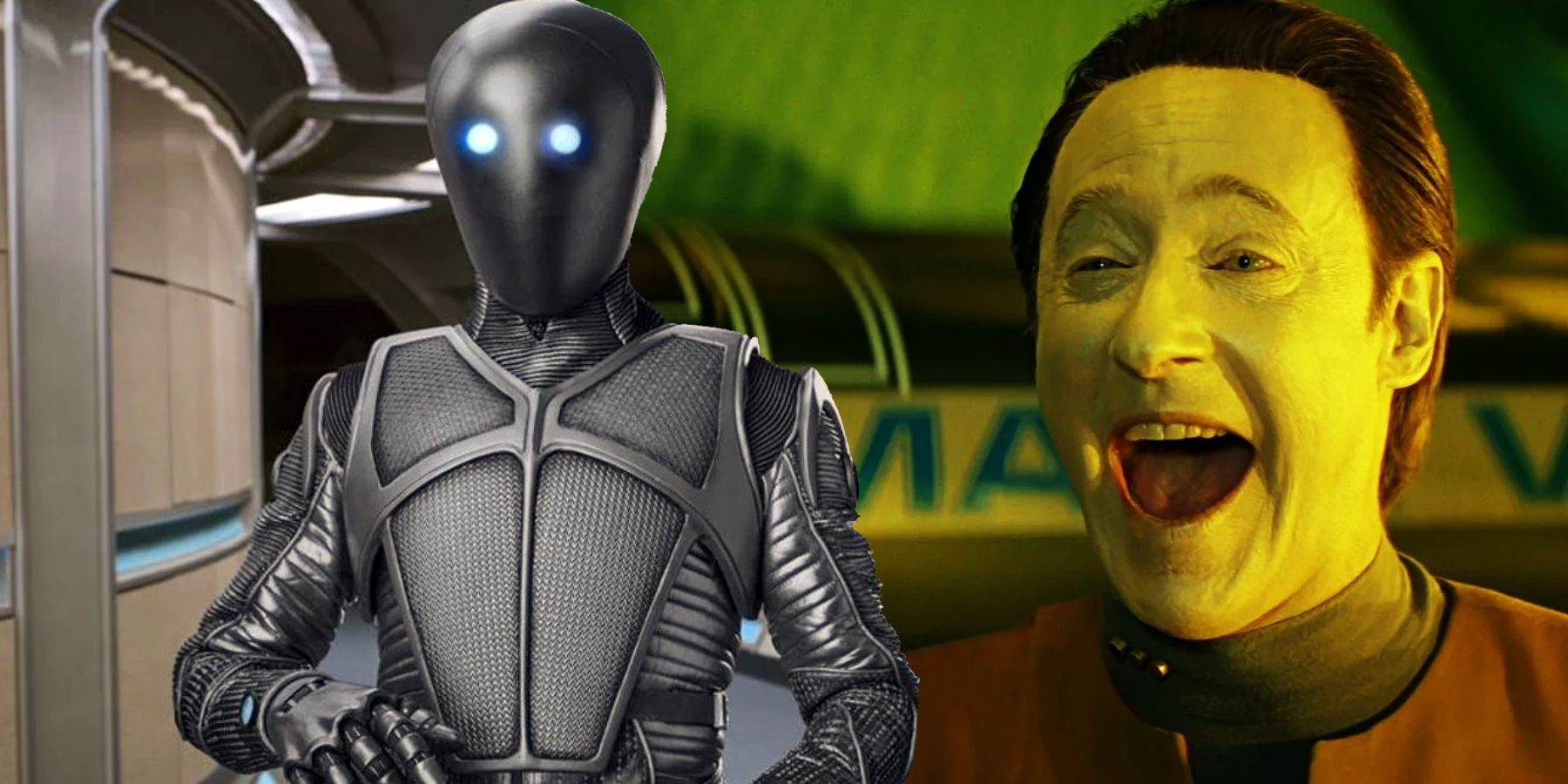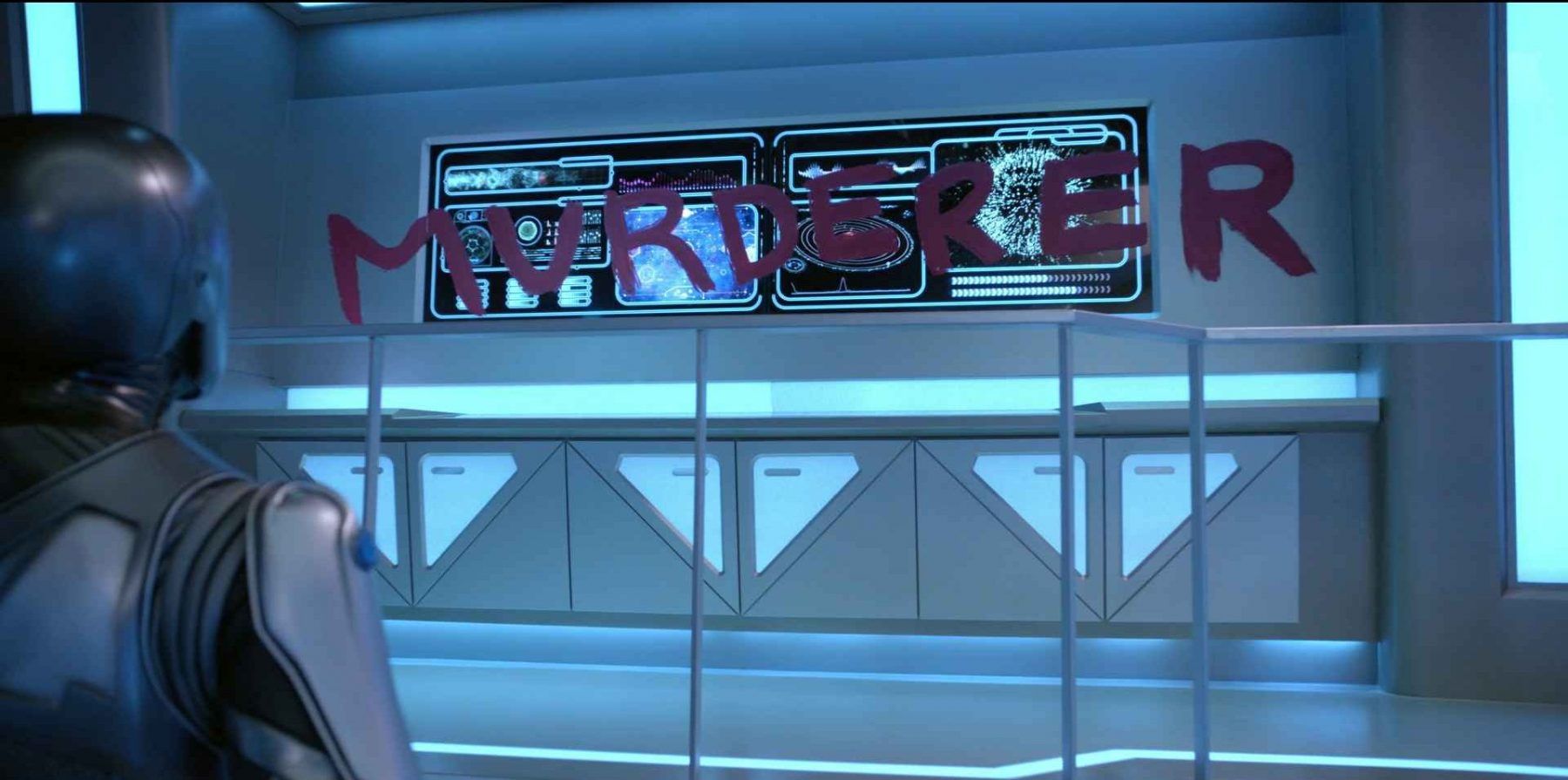Warning: SPOILERS for The Orville Season 3, Episode 1 - "Electric Sheep"
The Orville season 3, rebranded as The Orville: New Horizons, has opened with an episode that puts a dark spin on an age-old Star Trek trope. In season 3, episode 1 "Electric Sheep", the crew of the Orville are still dealing with the fallout of the revelations of Kaylon emissary Isaac's (Mark Jackson) true mission - to gather information on the Planetary Union. The Orville season 2, episodes 8 and 9, "Identity" saw the Kaylon use Isaac's information to take control of the Orville to launch a full-scale attack on the Planetary Union. While Isaac eventually rejected his own species to save his crewmates and the Union, it's clear that many on board the ship aren't ready to forgive him for his involvement in the attack.
"Identity" felt very similar to Star Trek's Borg 2-parter "The Best of Both Worlds", of which creator Seth MacFarlane is a big fan. It also won an Emmy for the incredible work by The Orville's visual effects team in realizing the magnitude and scale of the space battle with the Kaylon. It's something that the show is clearly very proud of, as there are numerous flashbacks to the battle during the season 3 opener "Electric Sheep." The battle with the Kaylon is just one of many ways that The Orville pays homage to MacFarlane's beloved Star Trek, and the season 3 opener revisits the franchise's recurring trope of how artificial life experiences human emotions.
Star Trek has regularly explored how androids or holograms wish to experience positive, and uniquely human emotions. Star Trek: The Next Generation's Data (Brent Spiner) experienced what it was like to laugh, love, and even feel the touch of human skin during his time on the Enterprise. As The Orville's very-own Commander Data, Isaac has also explored similar emotions, most notably in his attempts to pursue a romantic relationship with Doctor Claire Finn (Penny Johnson Jerald.) It's Claire's son Marcus (BJ Tanner) who is the first character to display his discomfort at Isaac still being onboard the Orville. Over the course of the episode, the artificial lifeform experiences the human emotion known as hatred for the very first time, subverting the positive emotions usually experienced by similar sci-fi characters. In this way, The Orville is able to cleverly subvert the classic AI emotional trope, using it to explore the darker side of human nature, rather than exploiting it for comic effect.
Seth McFarlane's The Orville has become known for deftly balancing sci-fi concepts, comedy, and pathos. "Electric Sheep," written and directed by MacFarlane, largely puts the comedy aside to explore how damaging stereotypes and prejudice can be within a workplace environment. The audience sees Isaac experience some horrendous examples of bullying culminating in Marcus telling Isaac that he wishes he was dead.
While Isaac cannot feel emotional pain, his response to the bullying is a viscerally affecting one. He ends his life, deactivating himself permanently, after leaving a message about increased efficiency, and his best wishes for Claire's family. When he's eventually resurrected via a change of heart from Marcus, Isaac explains his decision. He believed that the Orville's efficiency would be increased if he were no longer on board, which is the AI version of somebody who feels that everyone would be better off if they were no longer alive.
Seth MacFarlane's The Orville season 3 continues the show's reputation for sci-fi allegory for the ways that prejudice and workplace bullying can have damaging, and often devastating effects on mental health. Isaac's death forces the crew to examine their own thoughts on suicide, and confront how their own actions led to his decision. This dark spin on the classic trope of artificial lifeforms experiencing positive human emotions proves once more that The Orville is often more adept at updating Star Trek's allegories and ideals for the modern world than the modern Trek shows are. For anyone affected by the issues raised in this article, a list of free counseling hotlines and emergency numbers for a number of nations can be found at OpenCounseling.com.
The Orville: New Horizons releases new episodes Thursdays on Hulu


